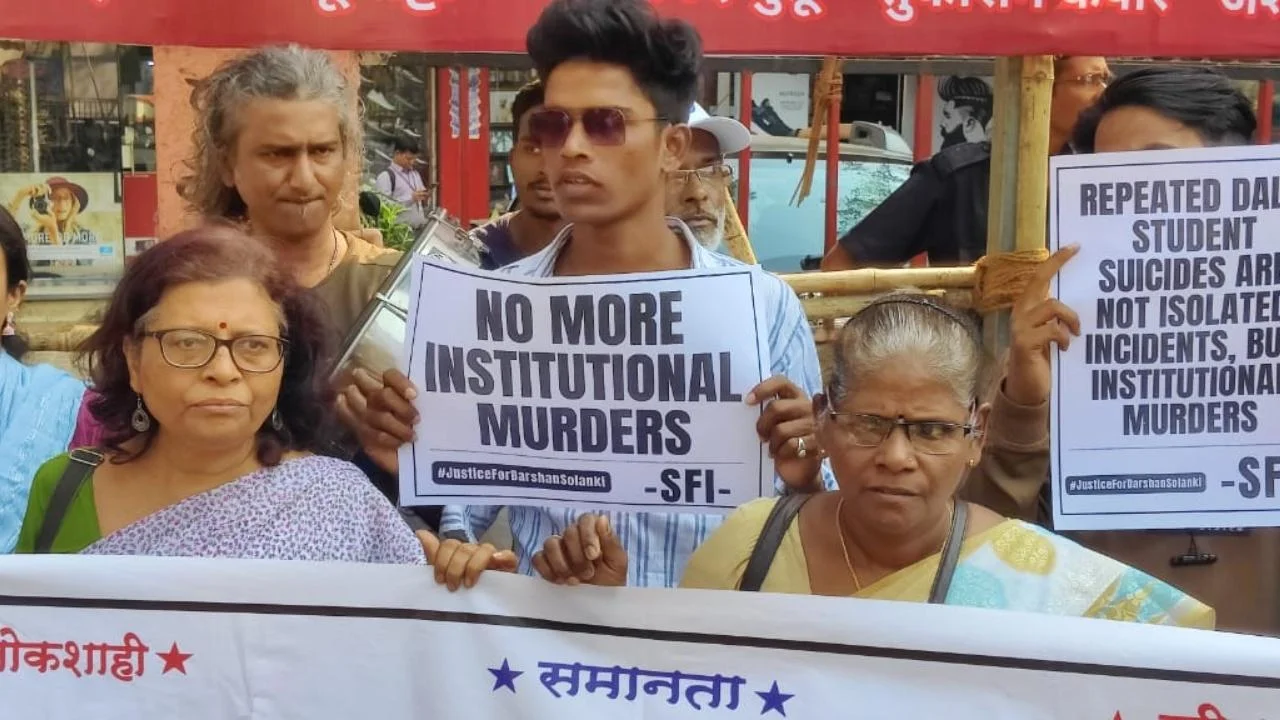Kinkri Devi was a courageous Dalit Indian activist and environmentalist who defied all odds at a period when there was no social media, little press coverage, and little public interest in environmental issues. She was one of those people who had a strong bond with her motherland and the environment. After fighting powerful, politically influential mining giants in her home region, her name and work came to limelight.
Kinkri Devi could not read or write, but built a reputation for herself through her dedication to environmental conservation. Kinkri Devi’s tale and her fight against illegal mining offers a lot of lessons for today’s generation.

Early life and contributions
Kinkri Devi was born in the hamlet of Gathon, in the Sirmaur district of Himachal Pradesh in 1925. Her father was a Dalit farmer, and her childhood years were difficult. Ms. Devi began working as a domestic worker in her early childhood because she had little chance of getting an education.
At the age of 14, she married Shamu Ram, a 14-year-old bonded laborer. Shamu Ram died from typhoid after eight years of marriage. She became a widow at the age of 22 and began working as a sweeper to help support her family. Kinkri Devi worked as a sweeper for a while, and it was at this time that she witnessed widespread environmental degradation in several regions of Himachal Pradesh’s hills.
Kinkri Devi was first recognised as a significant environmentalist on the international stage in 1995. Kinkri Devi was invited to the International Women’s Conference in Beijing by Hillary Clinton, the first lady of the United States at the time. She was invited to ignite the lamp at the conference and to share her remarkable story with the rest of the world. She spoke to tremendous applause about how illicit limestone quarrying was destroying the majestic Himalayas, and how it was up to ordinary people like her to safeguard the ecosystem. Devi received the Jhansi Ki Rani Lakshmi Bai Stree Shakti Puraskar in 1999
She watched as the landscape around her deteriorated, due to the unchecked quarrying which despoiled the renowned hills in many sections of Himachal Pradesh, contaminating the water supply and destroying the once-prosperous paddy crops. She became aware of the negative consequences of mining on human life and the environment, and decided to speak against it.
Limestone quarrying was a large business in Sirmaur. Due to extensive quarrying, water sources were contaminated, agricultural land was degraded, and woodland areas were reduced. Kinkri Devi couldn’t stand the fact that her beloved hills were being demolished. So she took a stand against environmental destruction and began her campaign by raising local awareness about quarrying. People’s Action for People in Need, a volunteer organisation, took note of her efforts and chose to assist her.

Finally, in 1987, Devi filed a public interest lawsuit against 48 mining owners, in the High Court of Shimla. She said that the mine owners were engaged in irresponsible mining, which was destroying the area’s natural ambiance. The mining owners on the other hand, disputed all of these allegations, claiming Kinkri Devi was extorting them.
She traveled to Shimla and undertook a 19-day hunger strike in front of the court after receiving no response to her PIL (public interest litigation). Devi had become a national celebrity by the time the court decided to take up the case. In 1987, her struggle was successful, and the court issued a blanket ban on hill blasting and a restriction on mining in her beloved hills. Realising that they would have to stop their illegal operations, her opponents threatened to kill her if she didn’t withdraw the case. Devi, on the other hand, was unfazed by them.
In 1995, the mine owners filed an appeal in the Supreme Court, but Kinkri Devi’s noble cause had already gained momentum. Ms. Devi’s reputation was further enhanced when the Supreme Court ruled in her favor in 1995. In addition to her environmental activism, Devi was also a campaigner for education. She advocated for the establishment of a degree-granting college in Sangrah which was very poorly placed on the education index at the time.
As she could not study because of the lack of schools, she did not want others to suffer the way she did for education. The college’s launch in 2006 is another example of how acts fueled by a strong motive always have an impact.
Also read: Remembering Chipko Movement: The Women-led Indigenous Struggle
Her strong spirit ushered in a new era for Himachal Pradesh. Despite her inability to read and write, she was the one who taught the masses about environmental issues and raised concerns about the repercussions of unchecked mining. Her slogan, “Jal, jungle, pahar ko bachao” (Save water, woods, and hills), continues to motivate individuals who are working hard to improve environmental conditions
Achievements and legacy
Kinkri Devi was first recognised as a significant environmentalist on the international stage in 1995. Kinkri Devi was invited to the International Women’s Conference in Beijing by Hillary Clinton, the first lady of the United States at the time. She was invited to ignite the lamp at the conference and to share her remarkable story with the rest of the world. She spoke to tremendous applause about how illicit limestone quarrying was destroying the majestic Himalayas, and how it was up to ordinary people like her to safeguard the ecosystem. Devi received the Jhansi Ki Rani Lakshmi Bai Stree Shakti Puraskar in 1999.

She passed away in Chandigarh on December 30, 2007, at the age of 82. Her journey was astounding, and she left behind a legacy of exemplary courage. Kinkri Devi had a strong bond with her motherland and the natural world. She was a visionary environmentalist who also worked to improve female child literacy in the most impoverished neighborhoods. She was a shining example of bravery who showed no fear in the face of threats from mammoth political powers.
Her strong spirit ushered in a new era for Himachal Pradesh. Despite her inability to read and write, she was the one who taught the masses about environmental issues and raised concerns about the repercussions of unchecked mining. Her slogan, “Jal, jungle, pahar ko bachao” (Save water, woods, and hills), continues to motivate individuals who are working hard to improve environmental conditions.
Her story teaches us that even when powerful forces are against us, all we need is courage and commitment to fight for our principles. She has shown that a single person can bring about a significant change. As a result, we must never give up the struggle for justice, even if we may think that we are not going to win.
Also read: Jharia: A Documentary On Simon Baba – Farmer, Thinker And The ‘Waterman Of Jharkhand’
About the author(s)
Shawrina is currently doing her honors in English Language and Literature at the East Delta University. She is just dipping her toes into the vast ocean of writing. She is always on the lookout for inspiration from the simple things in life. Her research interests involve anything that makes her wonder about the world around and within her




